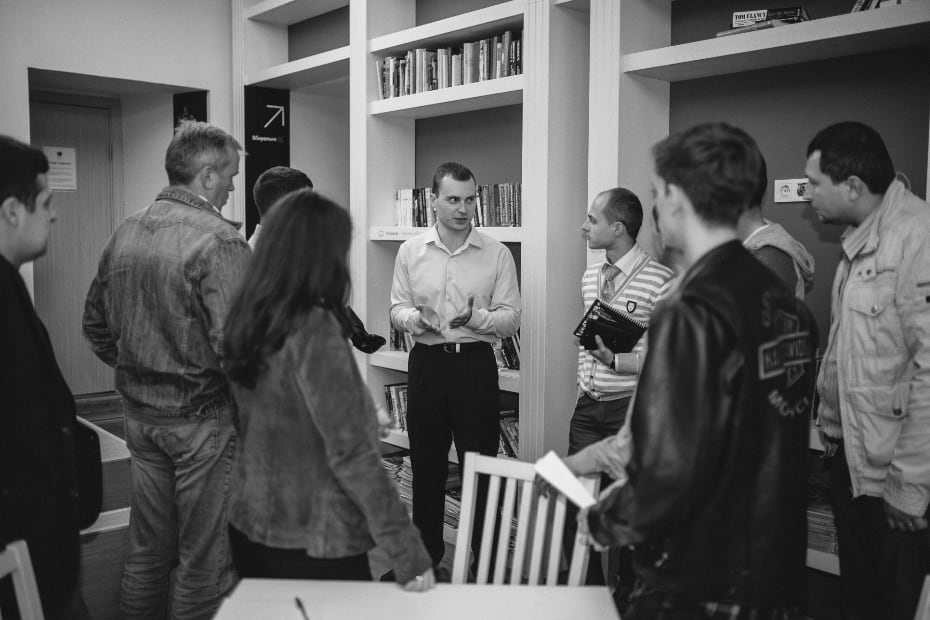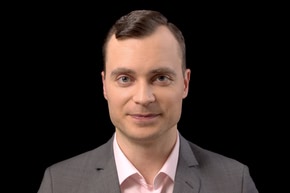Mnemonics Mastergroup
Unlimited support for those who have taken our memory training and courses
Problems after training
At the training, Bogdan works with you live. You communicate directly, he immediately answers questions and prompts you.
Then you have formed a memorization skill. But you have to develop it further. Otherwise, the training will remain just theory. And even if you then brought the skill to a working state, you still need to maintain it. So it is everywhere: in sports, in music, in any other activity.
And it’s hard to practice on your own. Every time you have to find the strength, the time, the motivation. There is no one to ask questions. There’s no one to consult with. You can’t discuss your situation specifically. Usually, after the training, people complain about this.
Bogdan is open to communication, he always says: “Write to me, I’m glad to answer your questions”. But either you’re shy, or it’s hard to make yourself sit down for such a letter.
Something had to be done about that. And so we created a closed mastergroup. This is our “professional hangout,” where we support each other and move forward together.
Why would you
Bogdan records video lectures and prepares methodological materials. But you can’t ask him a question when it’s recorded on video. And he can’t check if you’re doing everything right. While every detail is important in mnemonic technique.
In the Mastergroup, Bogdan personally answers your questions. Explains each technique and tells you how to memorize it easily.
If you’ve forgotten something from the training, Bogdan will certainly remind you. You can share your experiences or tell about the problem right in the session.
When we organized live training at the beginning of the 2010s, we constantly saw the situation: Bogdan asked if there were any questions at the end, but everyone kept silent. We let people go and say goodbye. But as soon as Bogdan starts folding his laptop, people come up: “I have a question.” And asked two or three people, but surrounded by a crowd to listen.
And usually, people would say, “Oh, it never even occurred to me to ask that question, and I have it. It didn’t make sense to me either, and now it’s come to me.”
Hearing the answers to other people’s questions is the value of a Mastergroup.


You have a personal support group by your side. People who are close in spirit help you to develop further.
Bogdan comes up with tasks for the participants of the Mastergroup. He brings practical tricks: new thoughts and fresh observations appear all the time. And it is not only Bogdan who shares his knowledge. You, too, have something to tell. It is always helpful to learn what others did and try on someone else’s situation on yourself.
In the Mastergroup, people memorize books and materials from different areas of knowledge. Usually, you have to force yourself, but here Bogdan does it for you in the session.
Training is good. But any training ends. And you need to move forward. This is what a Mastergroup is for.
Why should we
Bogdan wants you to keep your results after training and move on. Good results with you = good reputation with us.
How the sessions take place
The meetings take place like training sessions at Zoom.
See Zoom
It’s not “support from our mentors in a chat room.” It’s not a webinar where you just listen and ask questions via chat. This is full-fledged face-to-face communication.
You can ask a question via webcam, share an experience, or talk about a problem. It’s like a friendly meeting, only online.
The Mastergroup will be led by Bogdan, as long as he is alive and well. And as long as you are interested.
Participation procedure
- Once a month, you prepare your questions in advance.
- These can be questions on individual memorization techniques or situations in general. You may ask questions on related topics. Ask any questions, and Bogdan will see: if it is inappropriate to discuss in the group, he will answer individually.
- Send your questions through the form below. Questions sent in advance have priority. The rest will be sorted out if there is still time.
- It is great when you include specific materials for memorizing. Then during the session, we do not waste time looking for them and downloading them. Send the materials through the form, too.
- Come to the session and we’ll work it all out together.
Sunday, 2025
UTC+1
“Don’t worry if you’ve forgotten something, if you haven’t practiced enough, or if someone seems more advanced. That’s why we created the Mastergroup so that you can improve your knowledge”
